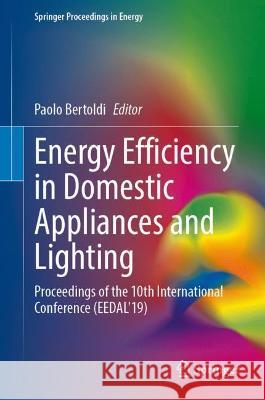Energy Efficiency in Domestic Appliances and Lighting: Proceedings of the 10th International Conference (Eedal'19) » książka
topmenu
Energy Efficiency in Domestic Appliances and Lighting: Proceedings of the 10th International Conference (Eedal'19)
ISBN-13: 9783030791230 / Angielski / Twarda / 2022 / 590 str.
Energy Efficiency in Domestic Appliances and Lighting: Proceedings of the 10th International Conference (Eedal'19)
ISBN-13: 9783030791230 / Angielski / Twarda / 2022 / 590 str.
cena 645,58
(netto: 614,84 VAT: 5%)
Najniższa cena z 30 dni: 616,85
(netto: 614,84 VAT: 5%)
Najniższa cena z 30 dni: 616,85
Termin realizacji zamówienia:
ok. 22 dni roboczych
Bez gwarancji dostawy przed świętami
ok. 22 dni roboczych
Bez gwarancji dostawy przed świętami
Darmowa dostawa!
Kategorie:
Kategorie BISAC:
Wydawca:
Springer
Seria wydawnicza:
Język:
Angielski
ISBN-13:
9783030791230
Rok wydania:
2022
Wydanie:
2022
Numer serii:
000481237
Ilość stron:
590
Oprawa:
Twarda
Wolumenów:
01
Dodatkowe informacje:
Wydanie ilustrowane











